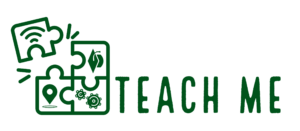 |
TeachME was a two-year project coordinated by the Johannes Gutenberg University Mainz with a duration of two years. The project focused on the development of neurodidactic concept for blended learning-based foreign language courses. The target group were international students, teachers, educators and supervisors. ERASMUS+ 2021-1-DE01-KA220-HED-000031184 |
 |
IDOL was a two-year project coordinated by Johannes Gutenberg University Mainz that started in February 2022. The project aimed to develop an innovative approach to implementing tandem teaching in intergenerational digital learning through engagement (service-learning). In the process, universities and their staff and faculty were equipped with knowledge, skills, and resources to digitally integrate tandem teaching in intergenerational learning with older and younger students. ERASMUS+ 2021-1-DE01-KA220-HED-000031186 |
 |
The goal of the SMILE project was to facilitate inclusive learning by developing, testing, and implementing innovative tools. In order to achieve this, it focused on three main areas that are commonly perceived as the main source of inequality and general disadvantages: migration background, disparity between the genders, and a low socio-economic status. ERASMUS+ 621433-EPP-1-2020-1-BE-EPPKA3-IPI-SOC-IN |
 |
IncludeHER aimed to empower female migrants to attain higher levels of digital competence and support Higher Education Institutions in all participating countries helping redress the gender imbalance in the digital sphere. ERASMUS+ 2020-1-DE01-KA203-005668 |
 |
SOLVINC seeked to support local and international students as well as higher education staff in developing intercultural and conflict management skills. ERASMUS+ 2018-1-PL01-KA203-050751 |
 |
Higher Education for You Too was designed to assist universities across Europe in adapting to an increasingly international and heterogeneous student population. ERASMUS+ 562237-EPP-1-2015-BE-EPPKA3-PI-FORWARD |
 |
Captive was a project designed to identify and Counter instances of gender-based violence against women with international and transnational identities. DAPHNE CAPTIVE/Just/2015/ RDAP/AG/VICT/9243 |
 |
The project Finding Education for Female Inmates, running from 11/2013 to 04/2016, concerned itself with the support of educational opportunities for female prisoners. EU GRUNDTVIG MULTILATERAL PROJECT 538856-LLP-1-2013-1-DE-GRUNDTVIG-GMP |
 |
Reintegration into Society through Education and Learning examined the importance of different factors in the process of reintegrating former prison inmates into society. EU GRUNDTVIG LEARNING PARTNERSHIPS 2011-1-DE2-GRU06-07813 6 |
 |
IMPLEMENT was a project supported by several European partners that aimed to assist universities in improving their performance as institutions of lifelong learning. EU LIFELONG LEARNING PROGRAMME 51882-LLP-1-2010-1-BE-KA4-KA4MP |
 |
The project HIPPO aimed to facilitate the reintegration of offenders into society through the development of individual learning processes in prison education. EU GRUNDTVIG LEARNING PARTNERSHIPS 2009-1-NO1-GRU06-00881 |
